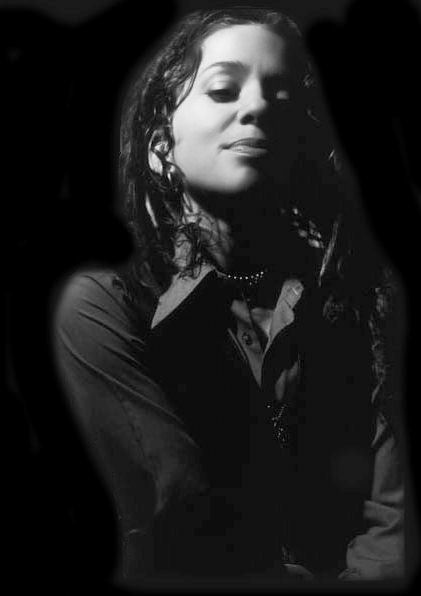|
B i o g r a p h y
(by Jason Ankeny)
A
folkie in punk's clothing, Ani DiFranco battled successfully against the
Goliath of corporate rock to emerge as one of the most influential and
inspirational cult heroines of the 1990s. A resolute follower of D.I.Y.
ethos, DiFranco released her records through her own indie label Righteous
Babe, slowly but steadily building a devout grass-roots following on the
strength of a relentless tour schedule; an ardent feminist and an open
bisexual, her songs tackled issues like rape, abortion and sexism with
insight and compassion, the music's empowering attitude and anger tempered
by the poignant candor of singer-songwriter confessionalism. Born in
Buffalo, New York on September 23, 1970, DiFranco began her career at the
age of nine, when her guitar teacher helped her land her first gig --
performing a set of Beatles covers -- at an area coffeehouse. Befriended
by the likes of Suzanne Vega and Michelle Shocked, she later gave up music
to study ballet, but at the age of 14 returned to the guitar and began
composing her first songs. A year later, alienated from her crumbling
family structure, she left home, living with friends while making the
rounds of the Buffalo folk club circuit.
By the age of 19 DiFranco had written over
100 original songs, and after briefly studying art she relocated to New
York City to further her musical aspirations; besieged by requests from
fans for tapes of her performances, she recorded a demo and pressed 500
copies of a self-titled cassette to sell at shows. The tape -- a spartan
acoustic folk collection of intensely personal essays on failed
relationships and gender inequities -- quickly sold out, and in 1990
DiFranco founded Righteous Babe to better distribute her recordings, which
were slowly spreading across the country on the strength of a substantial
word-of-mouth following. In 1991, after issuing the assured Not So Soft,
DiFranco hit the road alone, touring the nation in her Volkswagen and
playing gigs wherever she could find them; her cult blossomed, and her
distinct image -- shaved head, tattoos and body piercings -- soon became
the de rigueur look for her fans as well. As albums like 1992's
Imperfectly and 1993's Puddle Dive expanded her musical ambitions as well
as her following, DiFranco became the subject of considerable major-label
interest, yet she steadfastly rejected all offers as Righteous Babe grew
to become a highly viable business venture.
DiFranco continued playing over 200 dates a
year, and soon even the mainstream media took notice of her
cottage-industry music; after 1994's masterful Out of Range, she exploded
with the following year's Not a Pretty Girl, which garnered notice from
outlets ranging from CNN to the New York Times. 1996's Dilate, a
sprawling, eclectic work detailing a heated love affair with a man -- much
to the chagrin of her lesbian followers -- even debuted in the Top 100 of
the Billboard charts, a stunning achievement for an independent release.
The live set Living in Clip followed in 1997. Early in 1998, DiFranco
released the studio effort Little Plastic Castle; her most musically
diverse release yet, it also was her highest-charting album to date, and
set the stage for the release of Up Up Up Up Up Up the following year.
Another new LP, To the Teeth, appeared in 1999 as well and in mid-2000
came the release of the odds-and-ends compilation Swing Set. Revelling:
Reckoning appeared in spring 2001. In 2002, DiFranco trudged on; a road
warrior at hear, she issued her first live album since 1997's Living In
Clip, So Much Shouting, So Much Laughter in September 2002. This
particular double-disc set captured handpicked favorites by DiFranco and
three songs previously unreleased. The following year's Evolve added funk,
jazz and Latin elements to the mix, while 2004's Educated Guess was
performed completely by DiFranco. Knuckle Down, co-produced by Joe Henry,
arrived in 2005. |








![]() Official Ani Difranco site
Official Ani Difranco site
![]()
![]() Ani Difranco Lyrics & Tabs
Ani Difranco Lyrics & Tabs
![]()
![]() Ani Difranco Resources
Ani Difranco Resources
![]()
![]() Ani Difranco Pictures
Ani Difranco Pictures
![]()
